#John Henry Cox
Explore tagged Tumblr posts
Text
The Nanny Diaries (2007) Review
Annie Braddock could not decide what to do with her career when graduating from college so she took a job working as a nanny for a rich New York City family. Attempting to tame the wild Grayer and put with with the dysfunction in the home between Mr and Mrs X. ⭐️⭐️ Continue reading The Nanny Diaries (2007) Review

View On WordPress
#2007#Alicia Keys#Comedy#Donna Murphy#Drama#Emma McLaughlin#Georgina Chapman#John Henry Cox#Laura Linney#Mike Rad#Nicholas Art#Nicola Kraus#Paul Giamatti#Review#Robert Pulcini#Romance#Scarlett Johansson#Shari Springer Berman#Sonnie Brown#The Nanny Diaries
5 notes
·
View notes
Text
Older men do it better.
#just girly thoughts#girl blogger#delusional#lana del rey#girlblogging#jensen ackles#jeffrey dean morgan#walton goggins#matthew gray gubler#pedro pascal#thomas gibson#andrew lincoln#henry cavill#karl urban#hugh jackman#tom hardy#sebastian stan#nanami kento#tom ellis#sukuna ryomen#sukuna#simon ghost riley#john price#konig cod#toji fushiguro#miguel o'hara#norman reedus#dylan o'brien#charlie cox#girlhood
130 notes
·
View notes
Text
Both Blood Ties and Moonlight are streaming on Tubi
Blood Ties 2 seasons (22 Episodes)
Staring:
Christina Cox, Kyle Schmid
Dylan Neal
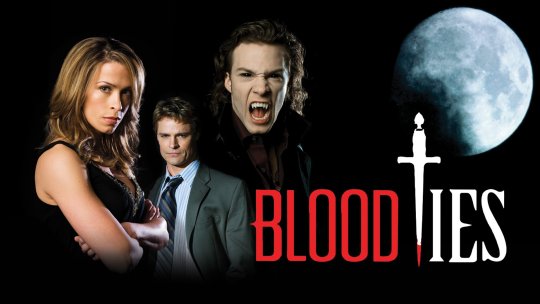
Moonlight 1 Season 16 episodes
Staring: Alex O'Loughlin, Sophia Myles,
Jason Dohring, Shannyn Sossamon
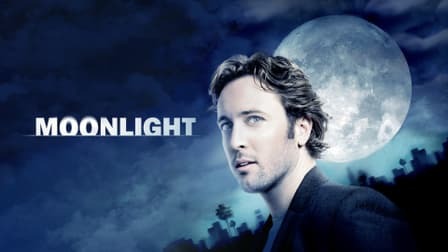
#moonlight cbs#cbs moonlight#moonlight tv#moonlight 2007#blood ties tv#blood ties lifetime#blood ties 2007#mick st. john#beth turner#josef kostan#coraline duvall#alex o'loughlin#sophia myles#jason dohring#shannyn sossamon#Vicki Nelson#Henry Fitzroy#Dylan Neal#Christina Cox#Kyle Schmid#tubi#free on tubi#vampire detective#vampire private investigator#vampire series#vampire tv shows
23 notes
·
View notes
Text

Look what came in the mail!!!


This is the clearest I've seen their faces not in potato pixel quality. There's a delightful little article in the back that isn't quite a review but more a "setting the stage" talking about Henry, John, and grisly medieval stories (Richard gets like a very tiny paragraph and not a lot said about his arc in this series.......makes me go HMM)

I can actually see their costumes more clearly in this pic (sorry for the bad photos qhality....maybe I'll scan them sometime)
#The devil's crown#The devil's crown 1978#BBC the devil's crown#Brian Cox#Jane Lapotaire#Kevin McNally#Michael Byrne#John Duttine#henry ii of england#eleanor of aquitaine#Richard I of England#Henry the Young King#John Lackland#12th century#Medieval#1970s#70s#Period dramas#RadioTimes
8 notes
·
View notes
Text
the most confounding thing about scrubs was the portrait of dorian gray reference
4 notes
·
View notes
Text
Loosing my shit
The worlds falling apart
What is life
(Just found out another “American actor” is British and has just been doing an okayish accent in every movie I’ve seen them in)
#let’s see#john boyega#benedict wong#millie bobby brown#Christian bale#henry cavill#idris elba#Charlie cox#andrew garfield#martin freeman#letitia wright#tom hardy#hugh laurie#hugh jackman#SHALL I CONTINUE
9 notes
·
View notes
Text

LETTERS FROM AN AMERICAN
December 29, 2024
Heather Cox Richardson
Dec 30, 2024
Former President Jimmy Carter died today, December 29, 2024, at age 100 after a life characterized by a dedication to human rights. His wife of 77 years, Rosalynn Carter, died on November 19, 2023; she was 96 years old.
James Earl Carter Jr. was born on October 1, 1924, in Plains, in southwestern Georgia, about half an hour from the site of the infamous Andersonville Prison, where United States soldiers died of disease and hunger during the Civil War only sixty years earlier. He was the first U.S. president to be born in a hospital.
Carter’s South was impoverished. He grew up on a dirt road about three miles from Plains, in the tiny, majority-Black village of Archery, where his father owned a farm and the family grew corn, cotton, peanuts, and sugar cane. The young Carters and the children of the village’s Black sharecroppers grew up together as the Depression that crashed down in 1929 drained away what little prosperity there was in Archery.
After undergraduate coursework at Georgia Southwestern College and at the Georgia Institute of Technology, Carter completed his undergraduate degree at the U.S. Naval Academy. In the Navy he rose to the rank of lieutenant, serving on submarines—including early nuclear submarines—in both the Atlantic and Pacific fleets.
In 1946, Carter married Rosalynn Smith, a friend of his sister’s, who grew up in Plains. When his father died in 1953, Carter resigned his naval commission and took his family back to the Carters’ Georgia farm, where he and Rosalynn operated both the farm and a seed and supply company.
Arriving back in Georgia just a year before the U.S. Supreme Court’s Brown v. Board of Education decision declared racial segregation in public schools unconstitutional, Carter quickly became involved in local politics. In 1962 he challenged a fraudulent election for a Georgia state senate seat, and in the runoff, voters elected him. The Carters became supporters of Democratic president John F. Kennedy in a state whose dominant Democratic Party was in turmoil as white supremacists clashed with Georgians eager to leave their past behind. Kennedy had sent troops to desegregate the University of Mississippi.
Carter ran for governor in 1966, the year after Congress passed the Voting Rights Act. He lost the primary, coming in third behind another liberal Democrat and a staunch segregationist Democrat, Lester Maddox, who won it and went on to win the governorship. When Carter ran again in 1970, he emphasized his populism rather than Black rights, appealing to racist whites. He won the Democratic primary with 60% of the vote and, in a state that was still Democrat-dominated, easily won the governorship.
But when Carter took office in 1971, he abandoned his concessions to white racists and took a stand for new race relations in the United States. “I say to you quite frankly that the time for racial discrimination is over,” he told Georgians in his inaugural speech. “No poor, rural, weak, or Black person should ever have to bear the additional burden of being deprived of the opportunity of an education, a job, or simple justice.”
His predecessor, Maddox, had refused to let state workers take the day off to attend services for the Reverend Dr. Martin Luther King Jr.’s funeral; Carter pointedly hung a portrait of King—as well as portraits of educator Lucy Craft Laney and Georgia politician and minister Henry McNeal Turner—in the State Capitol.
Carter brought to office a focus not only on civil rights but also on cleaning up and streamlining the state’s government. He consolidated more than 200 government offices into 20 and backed austerity measures to save money while also supporting new social programs, including equalizing aid to poor and wealthy schools, prison reform and early childhood development programs, and community centers for mentally disabled children.
At the time, the state constitution prohibited Carter from reelection, so he built recognition in the national Democratic Party and turned his sights on the presidency. In the wake of the scandals that brought down both President Richard Nixon and Vice President Spiro Agnew, as well as many of their staff, when it seemed to many Americans that all of Washington was corrupt, voters welcomed the newcomer Carter as an outsider who would work for the people.
He seemed a new kind of Democrat, one who could usher in a new, multicultural democracy now that the 1965 Voting Rights Act had brought Black and Brown voters into the American polity. Like many of the other civil rights coalitions in the twentieth century, Carter’s supporters shared music reinforced their politics, and Carter’s deep knowledge of blues, R&B, folk, and especially the gospel music of his youth helped him appeal to that era’s crucially important youth vote. Bob Dylan; Crosby, Stills & Nash, Nile Rodgers, Willie Nelson, and Johnny Cash, as well as the Allman Brothers, all backed Carter, who later said: “I was practically a non-entity, but everyone knew the Allman Brothers. When they endorsed me, all the young people said, ‘Well, if the Allman Brothers like him, we can vote for him.’”
Elected by just over 50% of American voters over Republican candidate Gerald R. Ford’s count of about 48%, Carter’s outsider status and determination to govern based on the will of the people sparked opposition from within Washington—including in the Democratic Party—and stories that he was buffeted about by the breezes of polls. But Carter's domestic policy advisor Stuart Eizenstat once said that Carter believed an elected president should “park politics at the Oval Office door” and try to win election by doing the right thing. He took pride in ignoring political interests—a stance that would hurt his ability to get things done in Washington, D.C.
Carter began by trying to make the government more representative of the American people: Eizenstat recalled that Carter appointed more women, Black Americans, and Jewish Americans to official positions and judgeships “than all 38 of his predecessors combined.”
Carter instituted ethics reforms to reclaim the honor of the presidency after Nixon’s behavior had tarnished it. He put independent inspectors in every department and established that corporations could not bribe foreign officials to get contracts. He expanded education programs, establishing the Department of Education, and tried to relieve the country from reliance on foreign oil by establishing the Department of Energy.
Concerned that the new regulatory agencies that Congress had created since the mid-1960s might be captured by industries and that they were causing prices to rise, Carter began the deregulation movement to increase competition. He began with the airlines and moved to the trucking industry, railroad lines, and long-distance phone service. He also deregulated beer production—his legalization of homebrewing sparked today’s craft brewing industry.
But Carter inherited slow economic growth and the inflation that had plagued presidents since Nixon, and the 1979 drop in oil production after the Iranian revolution exacerbated both. While more than ten million jobs were added to the U.S. economy during his term—almost twice the number Reagan added in his first term, and more than five times the number George H.W. Bush added in his—inflation hit 14% in 1980. To combat that inflation, Carter appointed Paul Volcker to chair the Federal Reserve, knowing he would combat inflation with high interest rates, a policy that brought down inflation during the first term of his successor, Ronald Reagan.
Carter also focused on protecting the environment. He was the first president to undertake the federal cleanup of a hazardous waste site, declaring a federal emergency in the New York neighborhood of Love Canal and using federal disaster money to remediate the chemicals that had been stored underground there.
Carter placed 56 million acres of land in Alaska under federal protection as a national monument, saying: “These areas contain resources of unequaled scientific, historic and cultural value, and include some of the most spectacular scenery and wildlife in the world,” he said. In 1979 he had 32 solar panels installed at the White House to help heat the water for the building and demonstrate that it was possible to curb U.S. dependence on fossil fuels. Just before he left office, Carter signed into law the Alaska National Interest Lands Conservation Act, protecting more than 100 million acres in Alaska, including additional protections for the Arctic National Wildlife Refuge.
Coming after Nixon’s secret bombing of Cambodia and support for Chile’s right-wing dictator Augusto Pinochet, whose government had systematically tortured and executed his political opponents, Carter’s foreign policy emphasized human rights. Carter echoed the 1948 Universal Declaration of Human Rights established by the United Nations, promising he would promote “human freedom” while protecting “the individual from the arbitrary power of the state.” He was best known for the Camp David Accords that achieved peace between Israel and Egypt after they had fought a series of wars. Those accords, negotiated with Anwar Sadat of Egypt and Menachem Begin of Israel paved the way for others. Carter credited the religious faith of the three men for making the agreement possible.
Carter also built on his predecessor Nixon’s outreach to China, normalizing relations and affording diplomatic recognition of China, enabling the two countries to develop a bilateral relationship. While commenters often credit President Reagan with pressuring the Soviet Union enough to bring about its dissolution, in fact it was Carter who negotiated the nuclear arms treaty that Reagan honored and who, along with his national security advisor Zbigniew Brzezinski, saw the Soviet Invasion of Afghanistan in 1979 as a major breach in international relations. He cut off grain sales to the USSR, ordered a massive defense buildup, and persuaded European leaders to accept nuclear missiles stationed in their countries, which Soviet leader Mikhail Gorbachev said was a significant factor in the dissolution of the USSR.
To Carter also fell the Iran hostage crisis in which Muslim fundamentalists overran the American embassy in the Iranian capital Tehran, seizing 66 Americans and holding them hostage for 444 days, in return for a promise that the American-backed Mohammad Reza Shah Pahlavi, whom Carter had admitted to the U.S. for cancer treatment, be returned to Iran for trial. Carter immediately froze Iranian assets and began secret negotiations, while Americans watched on TV as Iranian mobs chanted “Death to America.” A secret mission to rescue the hostages failed when one of the eight helicopters dispatched to rescue the hostages crashed, killing eight soldiers. Before he left office, Carter successfully negotiated for the hostages’ return; they were released the day of Reagan’s inauguration.
Carter left office in January 1981, and the following year, in partnership with Emory University, he and Rosalynn established the Carter Center, an Atlanta-based nongovernmental, not-for-profit organization to advance peace, health, and human rights around the world.
The Carter Center has supervised elections in more than 100 countries, has helped farmers in 15 African countries to double or triple grain production, and has worked to prevent disease in Latin America and Africa. In 1986, when the Carter Center began a program to eradicate infections of the meter-long Guinea worm that emerges painfully from sufferers’ skin and incapacitates them for long periods, 3.5 million people a year in Africa and Asia were infected; in 2022 there were only 13 known infections, in 2023 there were 14. So far in 2024, there have been 7, but those will not be officially confirmed until spring 2025. In a 2015 interview, Carter said he hoped to outlive the last case.
President Carter said, “When I was in the White House, I thought of human rights primarily in terms of political rights, such as rights to free speech and freedom from torture or unjust imprisonment. As I traveled around the world since I was president, I learned there was no way to separate the crucial rights to live in peace, to have adequate food and health care, and to have a voice in choosing one’s political leaders. These human needs and rights are inextricably linked.”
In 2002, Carter received the Nobel Peace Prize “for his decades of untiring effort to find peaceful solutions to international conflicts, to advance democracy and human rights, and to promote economic and social development.” When journalist Katie Couric of The Today Show asked him if the Nobel Peace Prize or being elected president was the most exciting thing that had ever happened to him, Carter answered: “When Rosalynn said she’d marry me, I think that’s the most exciting thing.”
In his Farewell Address on January 14, 1981, President Jimmy Carter worried about the direction of the country. He noted that the American people had begun to lose faith in the government’s ability to deal with problems and were turning to “single-issue groups and special interest organizations to ensure that whatever else happens, our own personal views and our own private interests are protected.” This focus on individualism, he warned, distorts the nation’s purpose because “the national interest is not always the sum of all our single or special interests. We are all Americans together, and we must not forget that the common good is our common interest and our individual responsibility.”
Carter urged Americans to protect our “most precious possessions: the air we breathe, the water we drink, and the land which sustains us,” and to advance the basic human rights that had, after all, “invented America.” “Our common vision of a free and just society,” he said, “is our greatest source of cohesion at home and strength abroad, greater even than the bounty of our material blessings.”
LETTERS FROM AN AMERICAN
HEATHER COX RICHARDSON
#Letters From An American#Heather CoX Richardson#Jimmy Carter#history#American History#American Presidents#R.I.P#The Carter Center
34 notes
·
View notes
Text


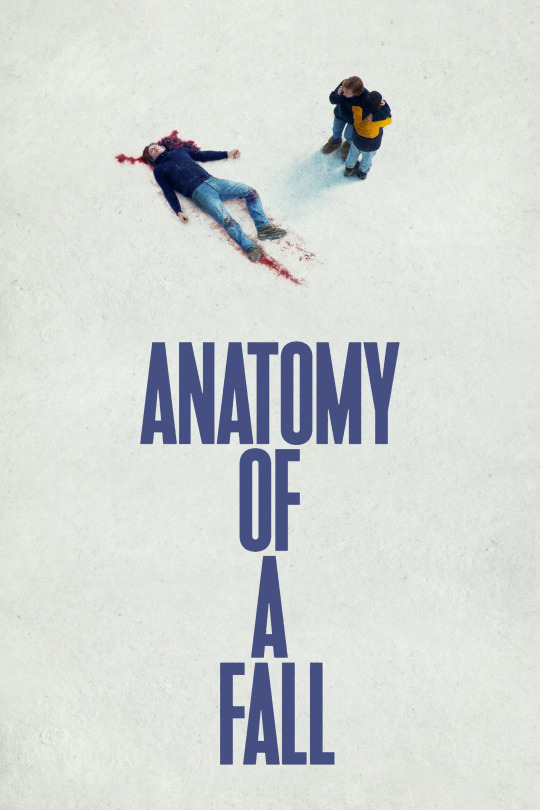


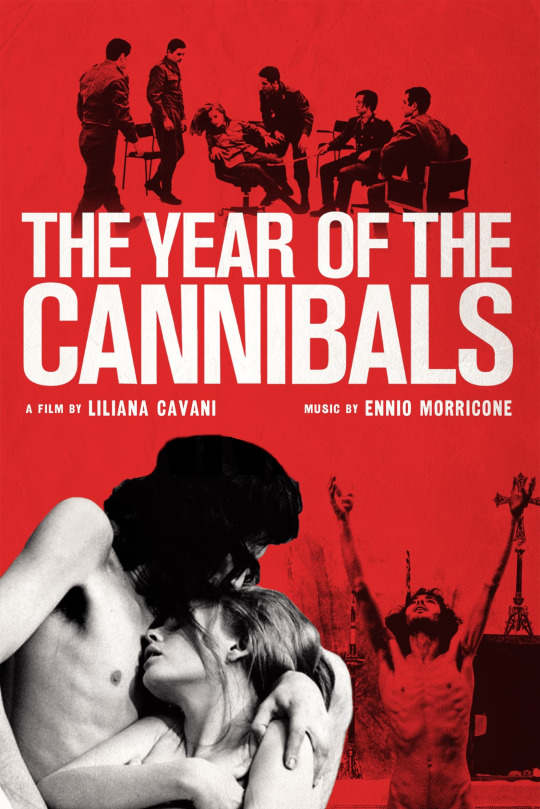



as is tradition here are my top nine new-to-me watches of the year—in no particular order (l-r, top row to bottom row):
the african desperate (martine syms, 2022) not a pretty picture (martha coolidge, 1975) anatomy of a fall (justine triet, 2023) the girls (mai zetterling, 1968) network (sidney lumet, 1976) the year of the cannibals (liliana cavani, 1970) all the beauty and the bloodshed (laura poitras, 2022) straight on till morning (peter collinson, 1972) microhabitat (jeon go-woon, 2017)
i hit 150 total films and my continual goal of half of the films by women and nonbinary filmmakers, and still definitely need to keep up with deliberately seeking out films by directors of color! feel free to tell me your faves if you’ve seen any of these 🖤👀🎬🍿🎥
i'll tag @privatejoker / @wanlittlehusk / @majorbaby / @edwardalbee / @draftdodgerag / @lesbiancolumbo / @frmulcahy / @nelson-riddle-me-this / @firewalkwithmedvd and anyone else who'd like to share their top watches of the year!
full list of films for the year is included below, favorites are bolded in red:
Farewell Amor (Ekwa Msangi, 2020)
Hell Camp: Teen Nightmare (Liza Williams, 2023)
Blacks Britannica (David Koff, 1978)
New Year, New You (Sophia Takal, 2023)
Family Band: The Cowsills Story (Louise Palanker and Bill Filipiak, 2011)
The Color Purple (Blitz Bazawule, 2023)
The Apology (Alison Star Locke, 2022)
Close (Lukas Dhont, 2022)
Unintended (Anja Murmann, 2018)
Other People’s Children (Liz Hinlein, 2015)
Omega Rising Women of Rastafari (D. Elmina Davis, 1988)
The Gypsy Moths (John Frankenheimer, 1969)
Be My Cat: A Film for Anne (Adrian Țofei, 2015)
Insomnia (Christopher Nolan, 2002)
Chowchilla (Paul Solet, 2023)
Intimate Relations (Philip Goodhew, 1996)
Monument (Jagoda Szelc, 2018)
After Sherman (Jon Sesrie Goff, 2022)
Remnants of the Watts Festival (Ulysses Jenkins, 1980)
Network (Sidney Lumet, 1976)
The Taking of Pelham One Two Three (Joseph Sargent, 1974)
Down Low (Rightor Doyle, 2023)
Our Father, the Devil (Ellie Foumbi, 2021)
The Zone of Interest (Jonathan Glazer, 2023)
Youngblood (Noel Nosseck, 1978)
Joy Division - Under Review (Christian Davies, 2006)
Being Frank: The Chris Sievey Story (Steve Sullivan, 2018)
Sun Ra: A Joyful Noise (Robert Mugge, 1980)
Fanny: The Right To Rock (Bobbi Jo Hart, 2021)
Depeche Mode: The Dark Progression (Alec Lindsell, 2009)
Kraftwerk And The Electronic Revolution (Thomas Arnold, 2008)
Blank City (Celine Danhier, 2010)
Oliver Sacks: His Own Life (Ric Burns, 2019)
Monster (Hirokazu Kore-eda, 2023)
Black Is Beltza (Fermín Muguruza, 2018)
Werewolf (Ashley McKenzie, 2016)
The Humans (Stephen Karam, 2021)
Relative (Tracey Arcabasso Smith, 2022)
The Believer (Henry Bean, 2001)
Lost Angel: The Genius of Judee Sill (Brian Lindstrom and Andy Brown, 2022)
Animals (Collin Schiffli, 2014)
Scott Walker: 30 Century Man (Stephen Kijak, 2006)
Novitiate (Maggie Betts, 2017)
Hunger (Henning Carlsen, 1966)
Late Night With The Devil (Cameron Cairnes and Colin Cairnes, 2023)
The Stunt Man (Richard Rush, 1980)
New York Doll (Greg Whiteley, 2005)
The Iron Claw (Sean Durkin, 2023)
Your Fat Friend (Jeanie Finlay, 2023)
Scarred Justice: The Orangeburg Massacre 1968 (Bestor Cram and Judy Richardson, 2008)
Targets (Peter Bogdanovich, 1968)
Uptight (Jules Dassin, 1968)
Messiah of Evil (Gloria Katz and Willard Huyck, 1973)
Plastic Paradise (Brett O’Bourke, 2013)
You Hurt My Feelings (Nicole Holofcener, 2023)
Pretty Poison (Noel Black, 1968)
The Shout (Jerzy Skolimowski, 1978)
Shakedown (Leilah Weinraub, 2018)
Class of 1984 (Mark L. Lester, 1982)
Betty: They Say I’m Different (Philip Cox, 2017)
Beautiful Boy (Felix van Groeningen, 2018)
Anatomy of a Fall (Justine Triet, 2023)
Gimme Shelter (Albert Maysles, David Maysles, and Charlotte Zwerin, 1970)
The Beach Boys (Frank Marshall and Thom Zimny, 2024)
High and Low (Kevin Macdonald, 2023)
Brats (Andrew McCarthy, 2024)
I Saw The TV Glow (Jane Schoenbrun, 2023)
The Talented Mr. Ripley (Anthony Minghella, 1999)
Altered States (Ken Russell, 1980)
This Closeness (Kit Zauhar, 2023)
How To Have Sex (Molly Manning Walker, 2023)
American Commune (Rena Mundo Croshere and Nadine Mundo, 2013)
Look In Any Window (William Alland, 1961)
Private Property (Leslie Stevens, 1960)
We’re Still Here: Johnny Cash’s Bitter Tears Revisited (Antonino D’Ambrosio, 2015)
The Wobblies (Stewart Bird and Deborah Shaffer, 1979)
Last Summer Won’t Happen (Tom Hurwitz and Peter Gessner, 1968)
Goodbye Gemini (Alan Gibson, 1970)
Keyboard Fantasies: The Beverly Glenn-Copeland Story (Posy Dixon, 2019)
The Most Beautiful Boy in the World (Kristina Lindström and Kristian Petri, 2021)
The Passenger (Carter Smith, 2023)
The Boys Who Said No (Judith Ehrlich, 2020)
Synecdoche, New York (Charlie Kaufman, 2008)
Karen Carpenter: Starving for Perfection (Randy Martin, 2023)
...And Justice For All (Norm Jewison, 1978)
I Used To Be Funny (Ally Pankiw, 2023)
Badlands (Terrence Malick, 1973)
Straight On Till Morning (Peter Collinson, 1972)
The Same Difference: Gender Roles in the Black Lesbian Community (Nneka Onuorah, 2015)
Thanksgiving (Eli Roth, 2023)
Sorry/Not Sorry (Caroline Suh and Cara Mones, 2023)
Am I OK? (Tig Notaro and Stephanie Allynne, 2022)
Joan Baez: I Am a Noise (Maeve O’Boyle, Miri Navasky, and Karen O’Connor, 2023)
No Direction Home (Martin Scorsese, 2005)
Shutter Island (Martin Scorsese, 2010)
Water Lilies (Céline Sciamma, 2007)
The Strings (Ryan Glover, 2020)
The Crucible (Nicholas Hytner, 1996)
Woman of the Hour (Anna Kendrick, 2024)
The Platform (Galder Gaztelu-Urrutia, 2019)
Tabloid (Errol Mark Morris, 2010)
Will & Harper (Josh Greenbaum, 2024)
Miller’s Girl (Jade Halley Bartlett, 2024)
Give Me Pity! (Amanda Kramer, 2022)
Landlocked (Paul Owens, 2021)
Perfect Love (Catherine Breillat, 1996)
Not a Pretty Picture (Martha Coolidge, 1975)
Seeking Mavis Beacon (Jazmin Jones, 2024)
Renfield (Chris McKay, 2023)
Compulsion (Richard Fleischer, 1959)
An Angel At My Table (Jane Campion, 1990)
Longlegs (Oz Perkins, 2024)
Rare Beasts (Billie Piper, 2019)
Nightman (Mélanie Delloye-Betancourt, 2023)
The Changin’ Times of Ike White (Daniel Vernon, 2020)
The Substance (Coralie Fargeat, 2024)
The Year of the Cannibals (Liliana Cavani, 1970)
Fanatical: The Catfishing of Tegan and Sara (Erin Lee Carr, 2024)
The Loneliest Planet (Julia Loktev, 2011)
Marjoe (Howard Smith and Sarah Kernochan, 1972)
Witches (Elizabeth Sankey, 2024)
Angela (Rebecca Miller, 1995)
The Morning After (Richard T. Heffron, 1974)
Beach Rats (Eliza Hittman, 2017)
Last Summer (Catherine Breillat, 2023)
The Fits (Anna Rose Holmer, 2015)
Hold Your Breath (Karrie Crouse and Will Joines, 2024)
What Comes Around (Amy Redford, 2022)
Dear Zachary: A Letter to a Son About His Father (Kurt Kuenne, 2008)
Priscilla (Sofia Coppola, 2023)
The Girls (Mai Zetterling, 1968)
Sweetie (Jane Campion, 1989)
Victim/Suspect (Nancy Schwartzman, 2023)
The African Desperate (Martine Syms, 2022)
Les Nôtres (Jeanne Leblanc, 2020)
A Sacrifice (Jordan Scott, 2024)
All the Beauty and the Bloodshed (Laura Poitras, 2022)
My Name is Not Ali (Viola Shafik, 2011)
Committed (Sheila McLaughlin and Lynne Tillman, 1984)
Chained (Jennifer Lynch, 2012)
The Hour of Liberation Has Arrived (Heiny Srour, 1974)
All Power To The People! (Lee Lew-Lee, 1997)
Night Moves (Kelly Reichardt, 2013)
Destroyer (Karyn Kusama, 2018)
Late Night (Nisha Ganatra, 2023)
The Year Between (Alex Heller, 2022)
Loved (Erin Dignam, 1997)
Girl In The Picture (Skye Borgman, 2022)
Microhabitat (Jeon Go-Woon, 2017)
Dear Ex (Mag Hsu and Chih-yen Hsu, 2018)
#i might watch more films between now and tomorrow so who knows but here's the final list; 150 new to me features feels like a good yearly#goal and if i surpass it all the better lol#the african desperate was my top film of the year <3
43 notes
·
View notes
Text
ENCONTRE UM AUTOR:
Envie sugestões. Leia uma citação no modo aleatório.
Autores Desconhecidos
Adélia Prado
Adrian Tchaikovsky
Affonso Romano de Sant’anna
Alain de Botton
Albert Einstein
Aldous Huxley
Alexander Pushkin
Amanda Gorman
Anaïs Nin
Andy Warhol
Andy Wootea
Anna Quindlen
Anne Frank
Antoine de Saint-Exupéry
Aristóteles
Arnaldo Jabor
Arthur Schopenhauer
Augusto Cury
Ben Howard
Benjamin Alire Sáenz
Benjamin Rush
Bill Keane
Bob Dylan
Brigitte Nicole
C. JoyBell C.
C.S. Lewis
Carl Jung
Carlos Drummond de Andrade
Carlos Fuentes
Carol Ann Duffy
Carol Rifka Brunt
Carolina Maria de Jesus
Caroline Kennedy
Cassandra Clare
Cecelia Ahern
Cecília Meireles
Cesare Pavese
Charles Baudelaire
Charles Chaplin
Charlotte Nsingi
Cheryl Strayed
Clarice Lispector
Claude Debussy
Coco Chanel
Connor Franta
Coolleen Hoover
Cora Coralina
Czesław Miłosz
Dale Carnegie
David Hume
Deborah Levy
Djuna Barnes
Dmitri Shostakovich
Douglas Coupland
Dream Hampton
E. E. Cummings
E. Grin
E. Lockhart
EA Bucchianeri
Edith Wharton
Ekta Somera
Elbert Hubbard
Elizabeth Acevedo
Elizabeth Strout
Emile Coue
Emily Brontë
Ernest Hemingway
Esther Hicks
Faraaz Kazi
Farah Gabdon
Fernando Pessoa
Fiódor Dostoiévski
Florbela Espanca
Franz Kafka
Frédéric Chopin
Fredrik Backman
Friedrich Nietzsche
Galileu Galilei
Georg Wilhelm Friedrich Hegel
George Orwell
Hafiz
Hanif Abdurraqib
Helen Oyeyemi
Henry Miller
Henry Rollins
Hilda Hilst
Iain Thomas
Immanuel Kant
Jacki Joyner-Kersee
James Baldwin
James Patterson
Jane Austen
Jean Jacques Rousseau
Jean Rhys
Jean-Paul Sartre
Jeremy Hammond
JK Rowling
João Guimarães Rosa
Joe Brock
Johannes Brahms
John Banville
John C. Maxwell
John Green
John Wooden
Jojo Moyes
Jorge Amado
José Leite Lopes
Joy Harjo
Juan Ramón Jiménez
Juansen Dizon
Katrina Mayer
Kurt Cobain
L.J. Smith
L.M. Montgomery
Leo Tolstoy
Lisa Kleypas
Lord Byron
Lord Huron
Louise Glück
Lucille Clifton
Ludwig van Beethoven
Lya Luft
Machado de Assis
Maggi Myers
Mahmoud Darwish
Manila Luzon
Manuel Bandeira
Marcel Proust
Margaret Mead
Marina Abramović
Mario Quintana
Mark Yakich
Marla de Queiroz
Martha Medeiros
Martin Luther King
Mary Oliver
Mattia
Maya Angelou
Mehdi Akhavan-Sales
Melissa Cox
Michaela Chung
Miguel de Cervantes Saavedra
Mitch Albom
N.K. Jemisin
Neal Shusterman
Neil Gaiman
Nicholas Sparks
Nietzsche
Nikita Gill
Nora Roberts
Ocean Vuong
Osho
Pablo Neruda
Patrick Rothfuss
Patti Smith
Paulo Coelho
Paulo Leminski
Perina
Peter Ilyich Tchaikovsky
Phil Good
Pierre Ronsard
Platão
Poe
R.M. Drake
Raamai
Rabindranath Tagore
Rachel de Queiroz
Ralph Emerson
Raymond Chandler
René Descartes
Reyna Biddy
Richard Kadrey
Richard Wagner
Ritu Ghatourey
Roald Dahl
Robert Schumann
Roy T. Bennett
Rumi
Ruth Rendell
Sage Francis
Séneca
Sérgio Vaz
Shirley Jackson
Sigmund Freud
Simone de Beauvoir
Spike Jonze
Stars Go Dim
Steve Jobs
Stephen Chbosky
Stevie Nicks
Sumaiya
Susan Gale
Sydney J. Harris
Sylvester McNutt
Sylvia Plath
Sysanna Kaysen
Ted Chiang
Thomas Keneally
Thomas Mann
Truman Capote
Tyler Knott Gregson
Veronica Roth
Victor Hugo
Vincent van Gogh
Virgílio Ferreira
Virginia Woolf
Vladimir Nabokov
Voltaire
Wale Ayinla
Warsan Shire
William C. Hannan
William Shakespeare
Wolfgang Amadeus Mozart
Yasmin Mogahed
Yoke Lore
Yoko Ogawa
322 notes
·
View notes
Text
In 1967 the Daily Telegraph, no less, produced a special on ‘the New Culture of Beat City.’ The prince of it all, perhaps, was a roly-poly poet and painter named Adrian Henri. With his fellow poets Roger McGough and Brian Patten he was responsible for a Penguin paperback, The Mersey Sound, which became the best-selling poetry collection of all time. And, this being Liverpool, Roger McGough found time to be in a chart-topping pop group, the Scaffold, as well. Once again Liverpool was not a provincial outpost but a creative hub which attracted progressive thinkers from far and wide. Henri would play host to the American beat poet Allen Ginsberg - who was, in his heart, something of a Beatle groupie and was moved to declare, ‘Liverpool is at the present moment the centre of the consciousness of the human universe.’ One day, the obscure performance artist Yoko Ono materialised, as Spencer Leigh recalls: ‘I am very proud of the fact that I touched Yoko Ono before John Lennon did. She came here in 1966 to the Bluecoat Chambers and had a “happening”. I had never been to a happening before, but it sounded very exciting and mysterious and avant garde so I went along. She invited members of the audience to wrap her up in bandages, so that is why I touched her before John Lennon did. I was doing her feet very delicately while Adrian Henri was doing the top half. She was covered in all these bandages and I remember John Gorman of the Scaffold shouting out, “You’re wanted on the phone!” ‘You could really see the influence she would have on John Lennon’s work. She had the black bags on stage and she invited people to come up on stage and take their clothes off inside the bag. About eight people did. It was an entertaining evening which went on for about two hours. Part of it was just watching her eat a tuna hsh sandwich. At the end of the happening she put a vase on the table and her husband Tony Cox smashed it and invited people to come up and take a piece. So I did and Yoko Ono said, “I want us all to meet in ten years’ time and piece this together.” I’ve never met her since.’
(Liverpool - Wondrous Place by Paul Du Noyer, 2002)
Part (I), (II), (III), (IV), (V), (VI), (VII), (VIII), (IX), (X), (XI), (XII), (XIII), (XIV), (XV), (XVI), (XVII), (XVIII), (XIX), (XX), (XXI), (XXII)
Mike McCartney:…I knew Yoko before John, she came to Liverpool with her husband and some American bloke. Q: Oh, that’s interesting… Mike McCartney: Yes, she was in the Bluecoat [Chambers], we went to see her in the Bluecoat in Liverpool because we’d heard about this Japanese artist. Q: He was putting on an exhibition or something? Mike McCartney: She did these wonderful exhibitions. In fact, we got thrown out of one of them because we were satirists… Q: You weren’t taking it that seriously then? Mike McCartney: We didn’t… Yoko, I’m sorry, now! I don’t know whether you remember this, but she did this thing where she would get people on the stage – and thank god she didn’t ask us to get up – and she would wrap them in bandages. You know, what I mean? She’s taking it so seriously, and we’re scouting you know. Then, “any suggestions from the audience” and there’s these people wrapped up in bandages and John ‘Tiswas’ Gornman did a ‘mummy’ joke. And, we were thrown out – “you’re not taking this seriously”.
(Mike McCartney talks to SDE about the reissue of his 1974 album ‘McGear’, September 2019, interview with Paul Sinclair)
#paul du noyer#liverpool#yoko ono#spencer leigh#the scaffold#mike mccartney#interview: mike#john gorman
11 notes
·
View notes
Text
HUGE M*A*S*H NEWS!
Direct of the MASH Matters Facebook Page

M*A*S*H: THE COMEDY THAT CHANGED TELEVISION, AN ALL-NEW TWO-HOUR CELEBRATION OF TELEVISION’S MOST INFLUENTIAL SITCOM
NEW ORIGINAL SPECIAL AIRS MONDAY, JANUARY 1, ON FOX
Featuring New Interviews with Cast Members Alan Alda, Gary Burghoff,
William Christopher, Jamie Farr, Mike Farrell, Wayne Rogers and Loretta Swit,
as well as Original Series Executive Producers Gene Reynolds and Burt Metcalfe
Plus Rarely-Seen Archival Interviews with Writer/Producer Larry Gelbart,
and Stars Larry Linville, Harry Morgan, McLean Stevenson and David Ogden Stiers
In the all-new two-hour special, M*A*S*H: The Comedy That Changed Television, premiering Monday, January 1 (8:00-10:00 PM ET/PT) on FOX, join the men and women who made M*A*S*H as they celebrate one of the most beloved, enduringly popular, often quoted and influential comedies ever created.
As the definitive look at the 14-time Emmy-winning television classic, the special centers around new interviews with original cast members Alan Alda (Capt. Benjamin Franklin "Hawkeye" Pierce), Gary Burghoff (Cpl. Walter "Radar" O'Reilly), William Christopher (Father Francis Mulcahy), Jamie Farr (Cpl./Sgt. Maxwell Q. "Max" Klinger), Mike Farrell (Capt. B.J. Hunnicutt), Wayne Rogers (Capt. "Trapper" John McIntyre) and Loretta Swit (Maj. Margaret "Hot Lips" Houlihan) and series executive producers Gene Reynolds and Burt Metcalfe. In these intimate, highly personal remembrances, the creation and evolution of the show’s iconic characters are revealed, alongside rare and never-before-seen behind-the-scenes footage, photos and stories.
Writer/producer Larry Gelbart, as well as additional series stars Larry Linville (Maj. Frank Burns), Harry Morgan (Col. Sherman T. Potter), McLean Stevenson (Lt. Col. Henry Blake) and David Ogden Stiers (Maj. Charles Emerson Winchester III) are remembered through a vibrant collection of clips from the series as well as in rarely-seen archival interviews. With unique experiences, observations and memories from 11 seasons of M*A*S*H, this special will make audiences laugh, touch their heartstrings, and leave them on a nostalgic high while celebrating the sustained brilliance of the iconic sitcom.
“M*A*S*H is not only a great television series, it is a cultural phenomenon. It has made multiple generations of viewers laugh, cry and think, often in the same episode,” said Executive Producers John Scheinfeld and Andy Kaplan. “We are excited to team with FOX to create this unprecedented window into an innovative television classic.”
"M*A*S*H is among the most iconic sitcoms in the annals of television history. It's a timeless show that comedically captures the 4077th medical corps and how they managed to maintain their sanity while saving lives on the front lines of the Korean War,” said Dan Harrison, EVP, Program Planning & Content Strategy, FOX Entertainment. “Larry Gelbart, Gene Reynolds and Burt Metcalfe brought this incredible comedy to life thanks to their ensemble cast led by the incomparable Alan Alda. FOX is proud to celebrate the landmark achievements of one of the best comedies ever created."
The M*A*S*H two-and-a-half-hour series finale that first aired on CBS in 1983 remains the highest rated telecast in television history, delivering an incredible 77 audience share and 60.2 rating. To-date, the show has never left the air, continuously running in syndication, on basic cable and now streaming on Hulu. The series was produced by 20th Television.
M*A*S*H: The Comedy That Changed Television is directed by John Scheinfeld (Reinventing Elvis: The ’68 Comeback, The U.S. vs. John Lennon and What The Hell Happened To Blood, Sweat & Tears?) with Scheinfeld and Andy Kaplan as Executive Producers.
Viewers can watch M*A*S*H: The Comedy That Changed Television next day on Hulu, Fox.com, On Demand and FOX Entertainment’s streaming platform, Tubi. On Demand is available for customers of Cox Contour TV, DIRECTV, DISH, fuboTV, Hulu + Live TV, Optimum, Spectrum, Verizon FiOS, XFINITY, YouTube TV and many more.
#m*a*s*h#mash#mash 4077#m*a*s*h 4077#hawkeye pierce#mash4077#alan alda#trapper john mcintyre#mike farrell#wayne rogers
90 notes
·
View notes
Text
I was today years old when I learned that John Laurens and Peggy Shippen are (supposedly, distantly) related.
According to William Coxe, writing in 1800:
A collateral branch of the family of Shippen is settled in Philadelphia, one of them married [Henry] Laurens, who was president of the congress, and another, the American general [Benedict] Arnold.
Coxe, William. Memoirs of the life and administration of Sir Robert Walpole, Earl of Orford, in three volumes. By William Coxe, M.A. F.R.S. F.A.S. Rector of Bemerton. ... Vol. 3, printed [by Luke Hansard] for T. Cadell, jun. and W. Davies, in the strand, 1800. Eighteenth Century Collections Online, link.gale.com/apps/doc/CW0100268298/ECCO?sid=bookmark-ECCO&xid=ae6db23e&pg=212. Accessed 16 Jan. 2025.
There's no quick way to verify this and I'm not entirely sure it's correct, given that John's mother Eleanor belonged the Delamere and Ball families – though this information was passed on from a Shippen family member directly to the author.
19 notes
·
View notes
Text
90's Superman fancast
Inspired by my 90's Justice League fancast!
Notice. Because of the 30 picture limit, will not be able to do them all the pics for the fancasts.
Brendan Fraser as Superman/Clark Kent

Courtney Cox as Lois Lane
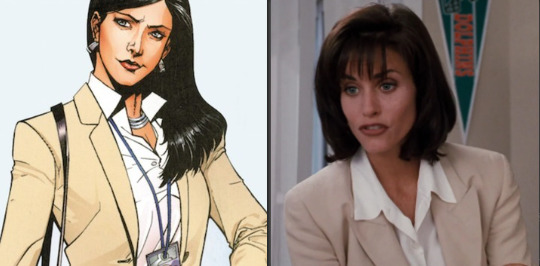
Sarah Michelle Gellar as Supergirl/Linda Danvers
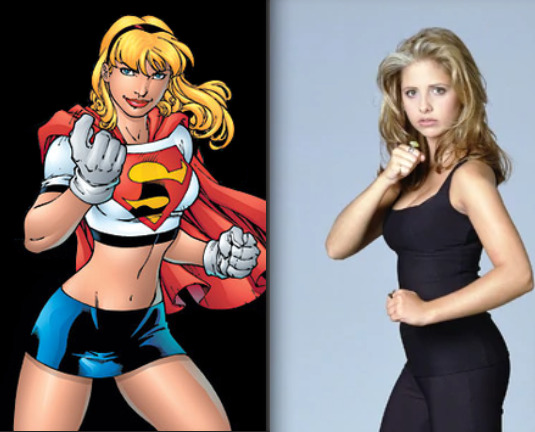
Omri Katz as Superboy/Connor Kent
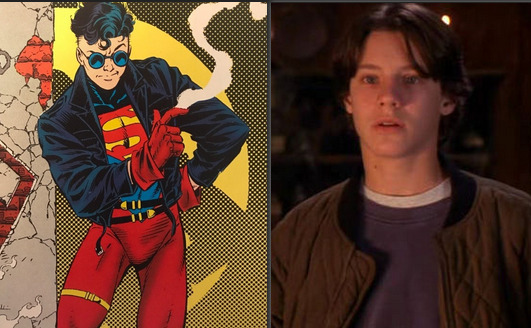
Will Smith as Steel/John Henry Irons

Robert Foster as Jonathan Kent
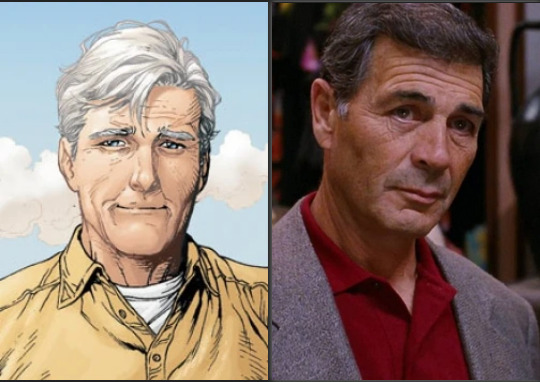
Madeline Kahn as Martha Kent

Keri Russell as Lana Lang

Seth Green as Pete Ross

Liam Neeson as Jor-El

Sigourney Weaver as Lara Lor-Van

Jamie Kennedy as Jimmy Olsen

George C. Scott as Perry White

Pamela Anderson as Cat Grant

Patrick Warburton as Steve Lombard

Martin Lawrence as Ron Troupe

R. Lee Ermey as General Sam Lane

Michael Biehn as Dan Turpin

Nicole Kidman as Maggie Sawyer

Danny Glover as William Henderson

Christopher Lloyd as Professor Emil Hamilton

Billy Zane as Lex Luthor

Gary Oldman as General Zod

Linda Hamilton as Ursa
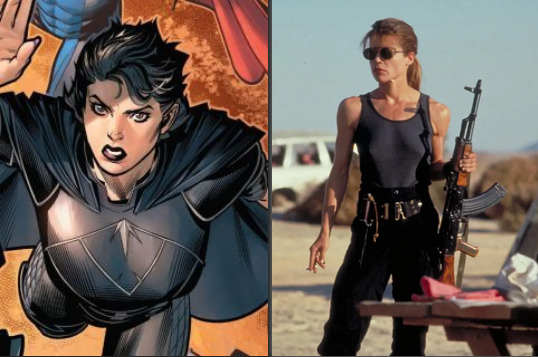
Kevin Nash as Non

Famke Janssen as Mercy Graves

Leonard Nimoy as Brainiac

James Earl Jones as Darkseid

Kane Hodder as Doomsday

Macho Man Randy Savage as Lobo
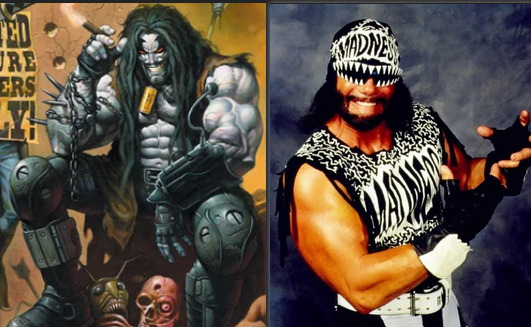
Gilbert Gottfried as Mr Mxyzptlk
Bill Murray as Toyman/Winslow Schott
Robert Patrick as Metallo/John Corbin
Brad Dourif as Parasite/Rudy Jones
Lori Petty as Livewire/Leslie Willis
Kelsey Grammer as Ultra Humanite
Ving Rhames as Mongul
Christian Bale as Manchester Black
Carl Weathers as Bloodsport/Robert DuBois
#DC#Fancasts#Superman#Clark Kent#Lois Lane#Clois#Jimmy Olsen#Lex Luthor#Supergirl#Superboy#Linda Danvers#Kon El#John Henry Irons#Darkseid#Brainiac#Lobo#Doomsday#General Zod#Mr Mxyzptlk#Toyman#Metallo#Parasite#Livewire#Ultra Humanite#Mongul#Manchester Black#Bloodsport#Perry White#Jonathan Kent#Martha Kent
8 notes
·
View notes
Text
Probably going to take a break uploading Promos for Moonlight (2007) for awhile
I upload what I can find I have asked for help but since Moonlight is so niche I would be really surprised if someone had a video I didn't and got in contact with me (I really don't know if lost media finders care about commercials for tv shows like I do 🤷♀️ especially this one)
I check YouTube every once in a while but it really all depends on what commercial compilations are uploaded sometimes I get lucky other times no so much....
I still have one I want to upload but it's super dark so I hope a video editing software can fix it
In the meantime I really want to focus on my Blood Ties Promo archive
It's small right now but I hope to add more videos and interviews
https://archive.org/details/20240312_20240312_1221
#moonlight cbs#cbs moonlight#moonlight tv#moonlight 2007#blood ties#blood ties lifetime#mick st. john#beth turner#alex o'loughlin#sophia myles#christina cox#kyle schmid#vicki nelson#henry fitzroy#lost media#tv commercials#tv promos#forgotten tv#vampire#vampire show
6 notes
·
View notes
Text
My favorite quotes from civ VI
TECHNOLOGY
“No man ever wetted clay and then left it, as if there would be bricks by chance and fortune.” – Plutarch
“If there are no dogs in Heaven, then when I die I want to go where they went.” – Will Rogers
“I AM FOND OF PIGS. Dogs look up to us. Cats look down on us. Pigs treat us as equals.” – Winston S. Churchill
“Who deserves more credit than the wife of a coal miner?” – Merle Travis
“When you find yourself in a hole, quit digging.” – Will Rogers
“I don’t believe in astrology; I’m a Sagittarius and we’re skeptical.” – Arthur C. Clarke
“Thousands have lived without love, not one without water.” -W. H. Auden
“I shot an arrow into the air. It fell to earth, I knew not where.” – Henry Wadsworth Longfellow
“Writing is easy. All you have to do is cross out the wrong words.” -Mark Twain
“I’m also interested in creating a lasting legacy … because bronze will last for thousands of years.” – Richard MacDonald
“MONEA, if it does not bring you happiness, will at least help you be miserable in comfort.” – Helen Gurley Brown
“A man on a horse is spiritually as well as physically bigger than a man on foot.” – John Steinbeck
“The Lord made us all out of iron. Then he turns up the heat to forge some of us into steel.” – Marie Osmond
“I cannot imagine any condition which would cause a ship to founder … Modern shipbuilding has gone beyond that.” – Capt. E.J. Smith, RMS Titanic
“Create with the heart; build with the mind.” – Criss Jami
“One man’s ‘magic’ is another man’s engineering.” – Robert Heinlein
“There is no easy way to train an apprentice. My two tools are example and nagging.” – Lemony Snicket
The purpose of education is to replace an empty mind with an open one.” – Malcolm Forbes
“It is the mark of an educated mind to be able to entertain a thought without accepting it.” – Aristotle
“Rocks in my path? I keep them all. With them I shall build my castle.” – Nemo Nox
“Not all who wander are lost.” – J.R.R. Tolkien
“People can have the Model T in any color – so long as it’s black.” – Henry Ford
“The pen might not be mightier than the sword, but maybe the printing press is heavier than the siege weapon. Just a few words can change everything.” – Terry Pratchett
“Astronomy’s much more fun when you’re not an astronomer.” – Brian May
“If facts don’t fit the theory, change the facts.” – Albert Einstein
“No one starts a war – or rather, no one in his senses ought to do so – without first being clear in his mind what he intends to achieve by that war and how he intends to conduct it.” – Karl von Clausewitz
“Science owes more to the steam engine than the steam engine owes to science.” – Lawrence Henderson
“Bolt actions speak louder than words.” – Craig Roberts
“Never criticize a rifleman until you have walked a mile in his shoes. That way, he’ll be barefoot and you’ll be out of range.” – The 2nd Target Company
“For once you have tasted flight you will walk the earth with your eyes turned skywards, for there you have been and there you will long to return.” – Leonardo da Vinci
“If you can walk away from a landing, it’s a good landing. If you use the airplane the next day, it’s an outstanding landing.” – Chuck Yeager
“Benjamin Franklin may have discovered electricity, but it was the man who invented the meter who made the money.” – Earl Wilson
“Chemists do not usually stutter. It would be very awkward if they did, seeing that they have at times to get out such words as methylethylamylophenylium.” – Sir William Crookes
“If God had really intended men to fly, He’d make it easier to get to the airport.” – George Winters
“Untutored courage is useless in the face of educated bullets.” – George Patton
“There may be no forgiveness for polyester. On this one matter, Satan and the Lord are in agreement.” – Joe Hill
“I’m a big laser believer – I really think they are the wave of the future.” – Courteney Cox
"Even though the future seems far away, it is actually beginning right now.” – Mattie Stepanek
CIVICS
“Bravery is being the only one who knows you’re afraid.” — Colonel David Hackworth
“A strong economy begins with a strong, well-educated workforce.”– Bill Owens “Look back over the past, with its changing empires that rose and fell, and you can foresee the future, too.” – Marcus Aurelius
“It was luxuries like air conditioning that brought down the Roman Empire. With air conditioning their windows were shut; they couldn’t hear the barbarians coming.” – Garrison Keillor
Divide and rule, a sound motto. Unite and lead, a better one.” – Johann Wolfgang von Goethe
“All the world’s a stage, and all the men and women merely players.” – William Shakespeare
“Invincibility lies in the defense; the possibility of victory in the attack.” – Sun Tzu
“History is the version of past events that people have decided to agree upon.” – Napoleon Bonaparte
“A good navy is not a provocation to war. It is the surest guaranty of peace.” – Theodore Roosevelt
“In democracy it’s your vote that counts; in feudalism it’s your count that votes.” – Mogens Jallberg
“There are very honest people who do not think that they have had a bargain unless they have cheated a merchant.” – Anatole France
“You can’t go around arresting the Thieves’ Guild. I mean, we’d be at it all day!” – Terry Pratchett
“Listen, strange women lying in ponds distributing swords is no basis for a system of government … You can’t expect to wield supreme power just ‘cause some watery tart threw a sword at you!” – Monty Python
“In diplomacy there are two kinds of problems: small ones and large ones. The small ones will go away by themselves, and the large ones you will not be able to do anything about.” – Patrick McGuinness
“A diplomat is a man who always remembers a woman’s birthday but never remembers her age.” – Robert Frost
“New opinions are always suspected, and usually opposed, without any other reason but because they are not already common.” – John Locke
“A common mistake that people make when trying to design something completely foolproof is to underestimate the ingenuity of complete fools.” – Douglas Adams
“Destroying rainforest for economic gain is like burning a Renaissance painting to cook a meal.” – Edward Wilson
“If you don’t read the newspaper, you’re uninformed. If you read the newspaper, you’re mis-informed.” -Mark Twain
“Sports do not build character. They reveal it.” – Heywood Broun
“A good plan violently executed right now is far better than a perfect plan executed next week.” – George S. Patton
“We choose to go to the moon in this decade and do the other things, not because they are easy, but because they are hard.” – John F. Kennedy
“Which of all my important nothings shall I tell you first?” -Jane Austen
“I never think of the future. It comes soon enough.” –Albert Einstein
#civilization#civ#civilization 6#civilization VI#civ vi#civ 6#qoutes#list#text#english#text post#there are many people that are qouted here#that tumblr likes
64 notes
·
View notes
Text
December 29, 2024
HEATHER COX RICHARDSON
DEC 30
Former President Jimmy Carter died today, December 29, 2024, at age 100 after a life characterized by a dedication to human rights. His wife of 77 years, Rosalynn Carter, died on November 19, 2023; she was 96 years old.
James Earl Carter Jr. was born on October 1, 1924, in Plains, in southwestern Georgia, about half an hour from the site of the infamous Andersonville Prison, where United States soldiers died of disease and hunger during the Civil War only sixty years earlier. He was the first U.S. president to be born in a hospital.
Carter’s South was impoverished. He grew up on a dirt road about three miles from Plains, in the tiny, majority-Black village of Archery, where his father owned a farm and the family grew corn, cotton, peanuts, and sugar cane. The young Carters and the children of the village’s Black sharecroppers grew up together as the Depression that crashed down in 1929 drained away what little prosperity there was in Archery.
After undergraduate coursework at Georgia Southwestern College and at the Georgia Institute of Technology, Carter completed his undergraduate degree at the U.S. Naval Academy. In the Navy he rose to the rank of lieutenant, serving on submarines—including early nuclear submarines—in both the Atlantic and Pacific fleets.
In 1946, Carter married Rosalynn Smith, a friend of his sister’s, who grew up in Plains. When his father died in 1953, Carter resigned his naval commission and took his family back to the Carters’ Georgia farm, where he and Rosalynn operated both the farm and a seed and supply company.
Arriving back in Georgia just a year before the U.S. Supreme Court’s Brown v. Board of Education decision declared racial segregation in public schools unconstitutional, Carter quickly became involved in local politics. In 1962 he challenged a fraudulent election for a Georgia state senate seat, and in the runoff, voters elected him. The Carters became supporters of Democratic president John F. Kennedy in a state whose dominant Democratic Party was in turmoil as white supremacists clashed with Georgians eager to leave their past behind. Kennedy had sent troops to desegregate the University of Mississippi.
Carter ran for governor in 1966, the year after Congress passed the Voting Rights Act. He lost the primary, coming in third behind another liberal Democrat and a staunch segregationist Democrat, Lester Maddox, who won it and went on to win the governorship. When Carter ran again in 1970, he emphasized his populism rather than Black rights, appealing to racist whites. He won the Democratic primary with 60% of the vote and, in a state that was still Democrat-dominated, easily won the governorship.
But when Carter took office in 1971, he abandoned his concessions to white racists and took a stand for new race relations in the United States. “I say to you quite frankly that the time for racial discrimination is over,” he told Georgians in his inaugural speech. “No poor, rural, weak, or Black person should ever have to bear the additional burden of being deprived of the opportunity of an education, a job, or simple justice.”
His predecessor, Maddox, had refused to let state workers take the day off to attend services for the Reverend Dr. Martin Luther King Jr.’s funeral; Carter pointedly hung a portrait of King—as well as portraits of educator Lucy Craft Laney and Georgia politician and minister Henry McNeal Turner—in the State Capitol.
Carter brought to office a focus not only on civil rights but also on cleaning up and streamlining the state’s government. He consolidated more than 200 government offices into 20 and backed austerity measures to save money while also supporting new social programs, including equalizing aid to poor and wealthy schools, prison reform and early childhood development programs, and community centers for mentally disabled children.
At the time, the state constitution prohibited Carter from reelection, so he built recognition in the national Democratic Party and turned his sights on the presidency. In the wake of the scandals that brought down both President Richard Nixon and Vice President Spiro Agnew, as well as many of their staff, when it seemed to many Americans that all of Washington was corrupt, voters welcomed the newcomer Carter as an outsider who would work for the people.
He seemed a new kind of Democrat, one who could usher in a new, multicultural democracy now that the 1965 Voting Rights Act had brought Black and Brown voters into the American polity. Like many of the other civil rights coalitions in the twentieth century, Carter’s supporters shared music reinforced their politics, and Carter’s deep knowledge of blues, R&B, folk, and especially the gospel music of his youth helped him appeal to that era’s crucially important youth vote. Bob Dylan; Crosby, Stills & Nash, Nile Rodgers, Willie Nelson, and Johnny Cash, as well as the Allman Brothers, all backed Carter, who later said: “I was practically a non-entity, but everyone knew the Allman Brothers. When they endorsed me, all the young people said, ‘Well, if the Allman Brothers like him, we can vote for him.’”
Elected by just over 50% of American voters over Republican candidate Gerald R. Ford’s count of about 48%, Carter’s outsider status and determination to govern based on the will of the people sparked opposition from within Washington—including in the Democratic Party—and stories that he was buffeted about by the breezes of polls. But Carter's domestic policy advisor Stuart Eizenstat once said that Carter believed an elected president should “park politics at the Oval Office door” and try to win election by doing the right thing. He took pride in ignoring political interests—a stance that would hurt his ability to get things done in Washington, D.C.
Carter began by trying to make the government more representative of the American people: Eizenstat recalled that Carter appointed more women, Black Americans, and Jewish Americans to official positions and judgeships “than all 38 of his predecessors combined.”
Carter instituted ethics reforms to reclaim the honor of the presidency after Nixon’s behavior had tarnished it. He put independent inspectors in every department and established that corporations could not bribe foreign officials to get contracts. He expanded education programs, establishing the Department of Education, and tried to relieve the country from reliance on foreign oil by establishing the Department of Energy.
Concerned that the new regulatory agencies that Congress had created since the mid-1960s might be captured by industries and that they were causing prices to rise, Carter began the deregulation movement to increase competition. He began with the airlines and moved to the trucking industry, railroad lines, and long-distance phone service. He also deregulated beer production—his legalization of homebrewing sparked today’s craft brewing industry.
But Carter inherited slow economic growth and the inflation that had plagued presidents since Nixon, and the 1979 drop in oil production after the Iranian revolution exacerbated both. While more than ten million jobs were added to the U.S. economy during his term—almost twice the number Reagan added in his first term, and more than five times the number George H.W. Bush added in his—inflation hit 14% in 1980. To combat that inflation, Carter appointed Paul Volcker to chair the Federal Reserve, knowing he would combat inflation with high interest rates, a policy that brought down inflation during the first term of his successor, Ronald Reagan.
Carter also focused on protecting the environment. He was the first president to undertake the federal cleanup of a hazardous waste site, declaring a federal emergency in the New York neighborhood of Love Canal and using federal disaster money to remediate the chemicals that had been stored underground there.
Carter placed 56 million acres of land in Alaska under federal protection as a national monument, saying: “These areas contain resources of unequaled scientific, historic and cultural value, and include some of the most spectacular scenery and wildlife in the world,” he said. In 1979 he had 32 solar panels installed at the White House to help heat the water for the building and demonstrate that it was possible to curb U.S. dependence on fossil fuels. Just before he left office, Carter signed into law the Alaska National Interest Lands Conservation Act, protecting more than 100 million acres in Alaska, including additional protections for the Arctic National Wildlife Refuge.
Coming after Nixon’s secret bombing of Cambodia and support for Chile’s right-wing dictator Augusto Pinochet, whose government had systematically tortured and executed his political opponents, Carter’s foreign policy emphasized human rights. Carter echoed the 1948 Universal Declaration of Human Rights established by the United Nations, promising he would promote “human freedom” while protecting “the individual from the arbitrary power of the state.” He was best known for the Camp David Accords that achieved peace between Israel and Egypt after they had fought a series of wars. Those accords, negotiated with Anwar Sadat of Egypt and Menachem Begin of Israel paved the way for others. Carter credited the religious faith of the three men for making the agreement possible.
Carter also built on his predecessor Nixon’s outreach to China, normalizing relations and affording diplomatic recognition of China, enabling the two countries to develop a bilateral relationship. While commenters often credit President Reagan with pressuring the Soviet Union enough to bring about its dissolution, in fact it was Carter who negotiated the nuclear arms treaty that Reagan honored and who, along with his national security advisor Zbigniew Brzezinski, saw the Soviet Invasion of Afghanistan in 1979 as a major breach in international relations. He cut off grain sales to the USSR, ordered a massive defense buildup, and persuaded European leaders to accept nuclear missiles stationed in their countries, which Soviet leader Mikhail Gorbachev said was a significant factor in the dissolution of the USSR.
To Carter also fell the Iran hostage crisis in which Muslim fundamentalists overran the American embassy in the Iranian capital Tehran, seizing 66 Americans and holding them hostage for 444 days, in return for a promise that the American-backed Mohammad Reza Shah Pahlavi, whom Carter had admitted to the U.S. for cancer treatment, be returned to Iran for trial. Carter immediately froze Iranian assets and began secret negotiations, while Americans watched on TV as Iranian mobs chanted “Death to America.” A secret mission to rescue the hostages failed when one of the eight helicopters dispatched to rescue the hostages crashed, killing eight soldiers. Before he left office, Carter successfully negotiated for the hostages’ return; they were released the day of Reagan’s inauguration.
Carter left office in January 1981, and the following year, in partnership with Emory University, he and Rosalynn established the Carter Center, an Atlanta-based nongovernmental, not-for-profit organization to advance peace, health, and human rights around the world.
The Carter Center has supervised elections in more than 100 countries, has helped farmers in 15 African countries to double or triple grain production, and has worked to prevent disease in Latin America and Africa. In 1986, when the Carter Center began a program to eradicate infections of the meter-long Guinea worm that emerges painfully from sufferers’ skin and incapacitates them for long periods, 3.5 million people a year in Africa and Asia were infected; in 2022 there were only 13 known infections, in 2023 there were 14. So far in 2024, there have been 7, but those will not be officially confirmed until spring 2025. In a 2015 interview, Carter said he hoped to outlive the last case.
President Carter said, “When I was in the White House, I thought of human rights primarily in terms of political rights, such as rights to free speech and freedom from torture or unjust imprisonment. As I traveled around the world since I was president, I learned there was no way to separate the crucial rights to live in peace, to have adequate food and health care, and to have a voice in choosing one’s political leaders. These human needs and rights are inextricably linked.”
In 2002, Carter received the Nobel Peace Prize “for his decades of untiring effort to find peaceful solutions to international conflicts, to advance democracy and human rights, and to promote economic and social development.” When journalist Katie Couric of The Today Show asked him if the Nobel Peace Prize or being elected president was the most exciting thing that had ever happened to him, Carter answered: “When Rosalynn said she’d marry me, I think that’s the most exciting thing.”
In his Farewell Address on January 14, 1981, President Jimmy Carter worried about the direction of the country. He noted that the American people had begun to lose faith in the government’s ability to deal with problems and were turning to “single-issue groups and special interest organizations to ensure that whatever else happens, our own personal views and our own private interests are protected.” This focus on individualism, he warned, distorts the nation’s purpose because “the national interest is not always the sum of all our single or special interests. We are all Americans together, and we must not forget that the common good is our common interest and our individual responsibility.”
Carter urged Americans to protect our “most precious possessions: the air we breathe, the water we drink, and the land which sustains us,” and to advance the basic human rights that had, after all, “invented America.” “Our common vision of a free and just society,” he said, “is our greatest source of cohesion at home and strength abroad, greater even than the bounty of our material blessings.”
—
5 notes
·
View notes